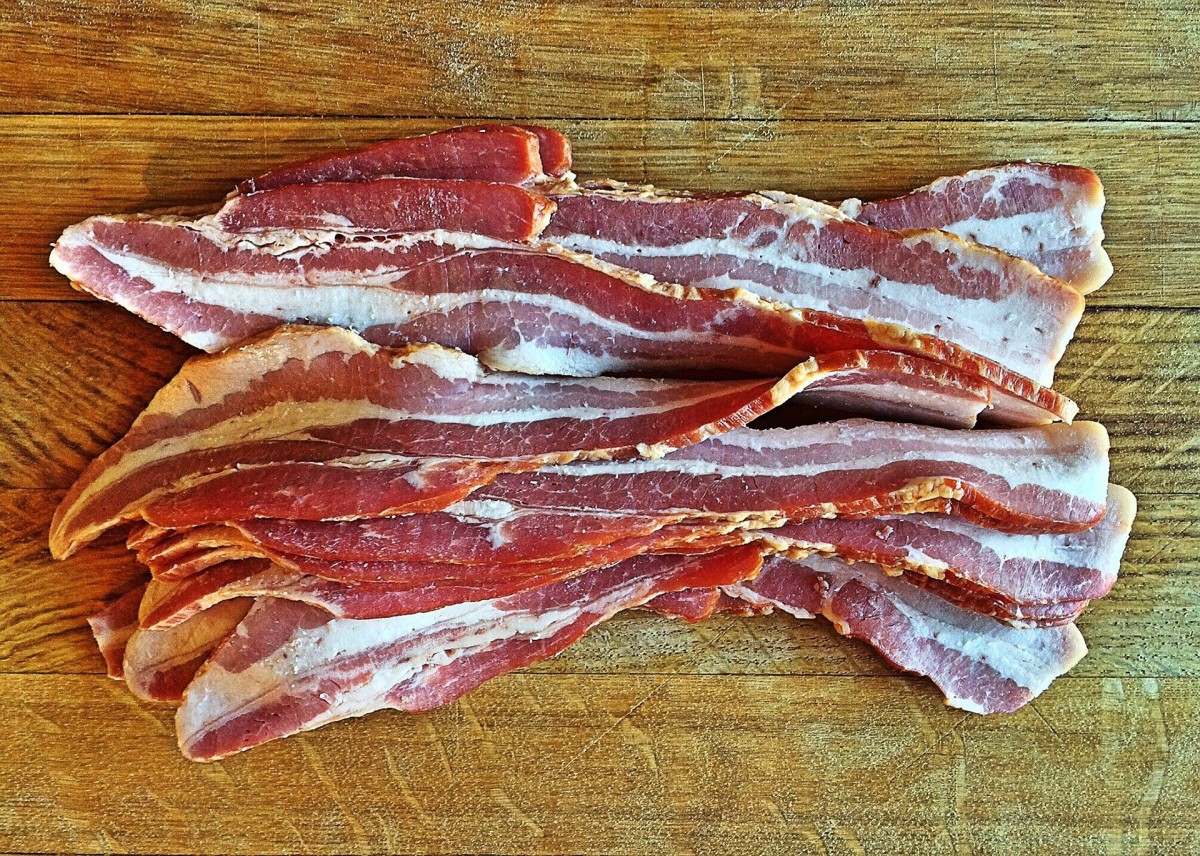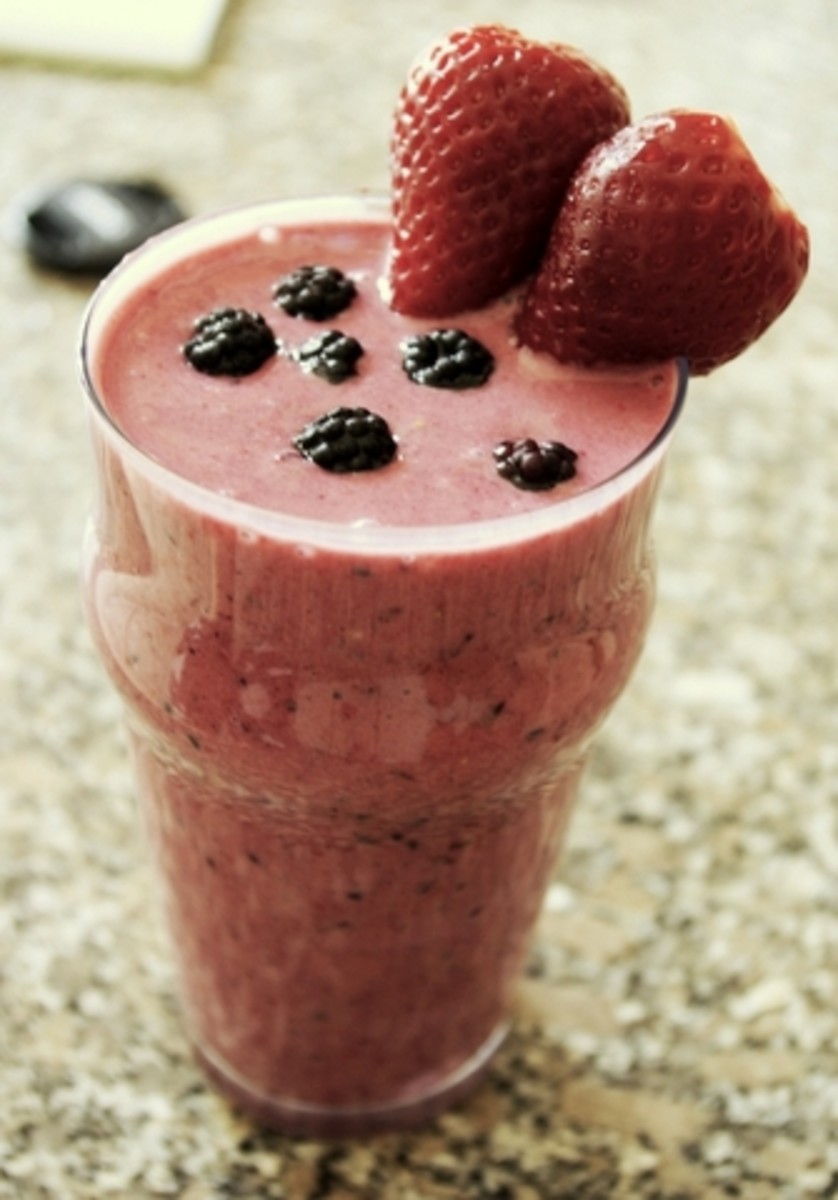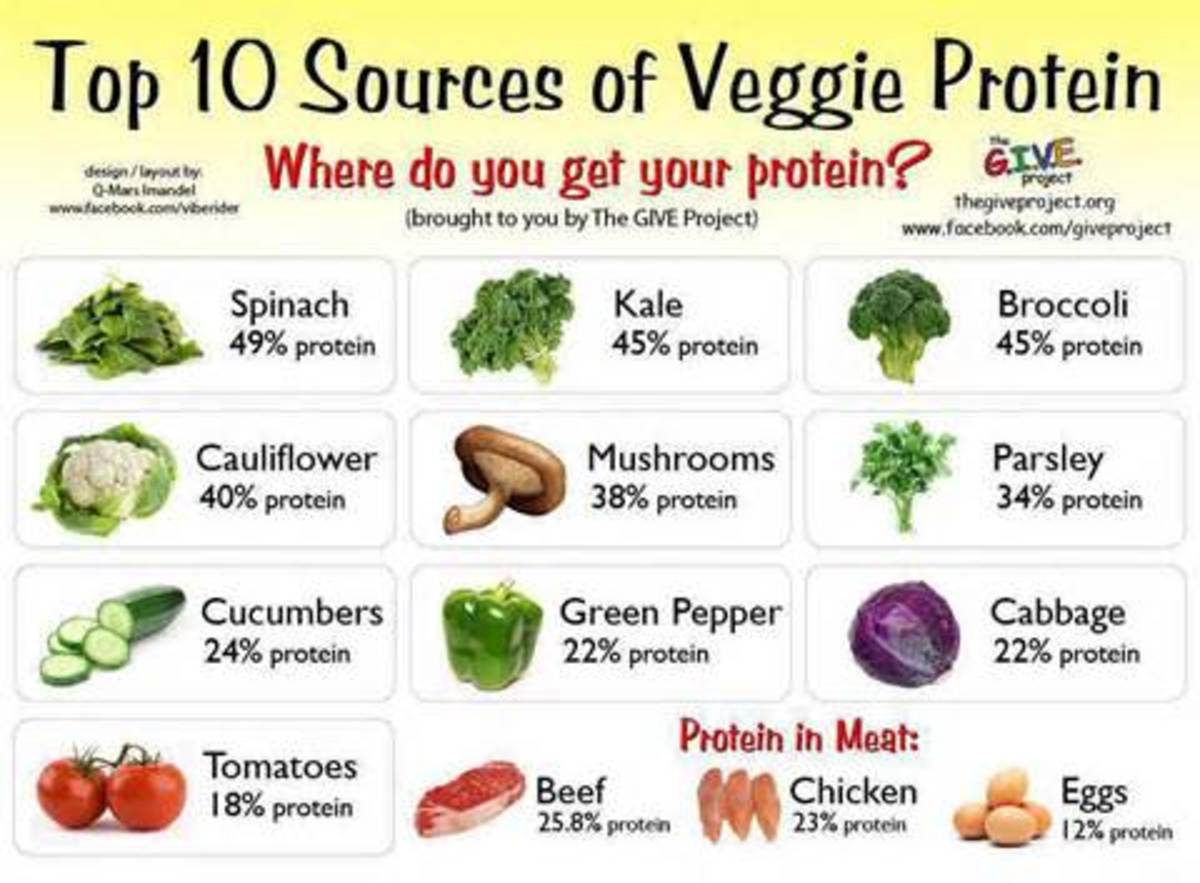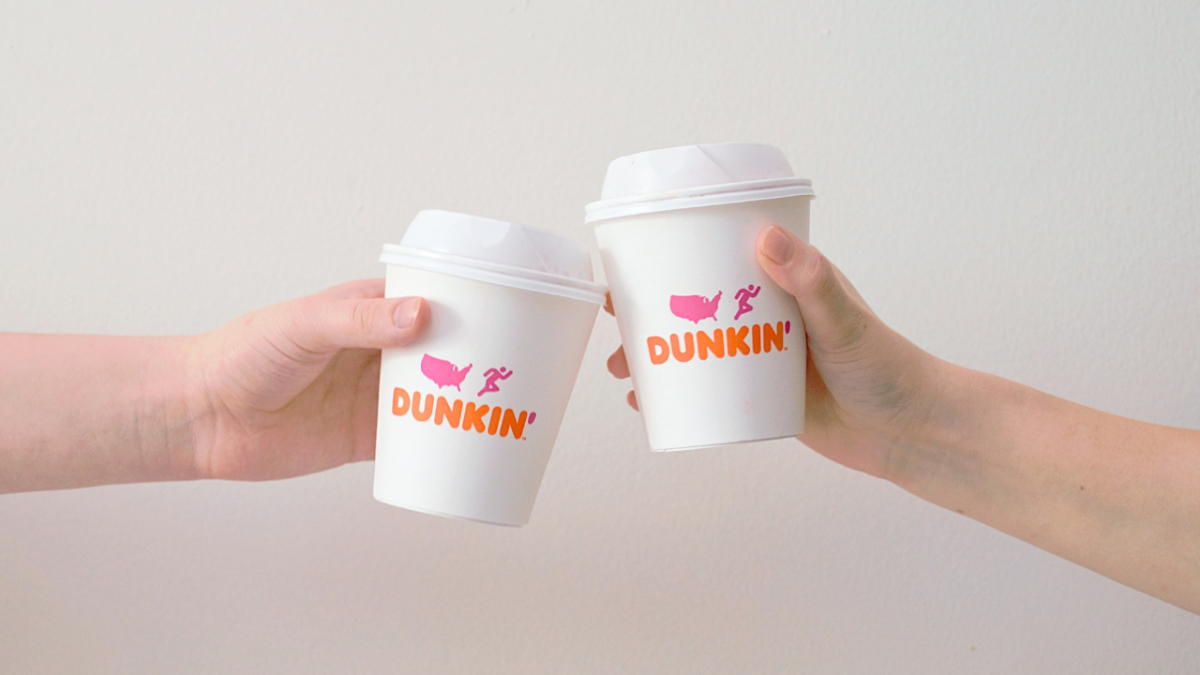Build Muscle by Eating Less Protein?
Eat less protein and you will build more muscle. It is a silly idea, right? After all, common scientific knowledge says that an athlete trying to build muscle needs at least 1.5-2.0 grams of protein per kilogram of bodyweight. So what gives?
First, let's do some math:
According to RD411.com, a healthcare professionals website, for a 180 pound male, which is about 82 kg of body weight, you would need between 123 and 164 grams of protein per day to accomplish your goal.
That's a truckload of eggs, meat, protein shakes or all three. If you are vegetarian/vegan, the eating volume is even greater.
If eating this much protein in one day sounds extreme, there is evidence indicating that such high percentages of protein in the diet are not necessary for building muscle. What type of and how many calories you eat with your protein, and when you eat it, are more important factors.
Too much is a Waste
According to researchers at Montana State University, even for a strength athlete whose protein needs are higher than most, protein synthesis stops completely at a consumption level of 2.4 g/kg of bodyweight. And the excess amino acids made by this process?
They are excreted in the resulting increase in urine production (a process called diuresis,) and can cause dehydration. They can also be converted to fat and stored.
The same research emphasizes that an unbalanced diet with too much of any one energy source can destroy progress. Consuming too many protein calories without enough carbohydrate calories, for example, will cause the body to break down the protein for energy.
The priority is to consume enough calories to meet energy needs, in balanced proportions. So how much does an athlete need to meet energy needs and maintain or build bigger, stronger muscles?
How Much Should I Eat?
In strength athletes (weightlifters, bodybuilders, or anyone who engages in regular resistance training,) protein-hungry muscles force the body to increase the production and breakdown of proteins, so a necessary increase in consumption is greatest in these athletes.
Following RD411's guidelines, these people are at the top of the spectrum and should be eating as much as 1.7 g/kg of bodyweight, or about 140 g of protein.
By the same guide, endurance athletes, such as runners,cyclists, etc.,should be consuming from 1.2-1.4 g/kg of bodyweight. That is, 98-115 grams.
Are you a couch potato? Then relax, your body only needs about 0.4 grams for every pound you own. Of course, if you weigh 250 pounds, that's still 100 grams of protein.
These numbers are from RD411, but the National Strength and Conditioning Association suggests an even lower number; .4 to .8 grams per pound for sedentary to high intensity exercisers, respectively.
The most important factor for increasing muscle size and strength according to the NSCA? Adequate fuel in the form of carbohydrates for enabling muscle stimulation and contractions.
Their formula:
Adequate carbohydrates=maximal fuel for muscle contraction through insulin response=protein synthesis=muscle hypertrophy.
I simplified this, but basically their results say that carbohydrates are broken down for fuel and trigger protein synthesis through the production of insulin. Insulin is hormone with anabolic properties.
A Note on Carbs
Eating carbohydrates with a high glycemic index, or a high insulin index, can disrupt your body's ability to regulate incoming calories. Find a glycemic or insulin index card or pocket book and keep it with you for handy reference.
The higher the GI number, the faster the food breaks down and goes into the bloodstream (think sugar rush.) The slower carbs are generally preferred, as they produce a longer, steadier energy supply. But beware, some proteins and fats have a high insulin index which can cause an exaggerated insulin response as well.
Protein Sources
The latest research is clear: Excess protein consumption does not increase muscle size or strength. The body still needs protein, however, so here is a list of some great sources:
-4 oz. of lean steak, chicken or fish: ~28 g protein.
-1 cup cooked vegetables: 4 g protein.
-1 cup oatmeal: 6 g
-1 egg white: 3.5 g each
-1 cup Greek yogurt: ~23 g (high fat kind)
-1 cup Kefir: 11g
-4 oz. tofu: ~10 g
Of course, beans and lentils are another excellent source, and you probably have many more to add to this list.
When Should I Eat it?
Because the body needs adequate carbohydrates and protein to fuel workouts, eat a very small meal or snack an hour before you start exercising. MayoClinic recommends consumption of 45-65 percent carbs, and 10-35 percent protein. The rest is reserved for good fats.
Remember to refuel the body with a balanced meal after the workout as well. This speeds recovery and provides much needed nutrition to exhausted muscles. Follow the same guidelines above, but feel free to eat a larger meal.
For the remainder of your protein needs,try to eat up to four additional snacks/meals throughout the day, for a total of six feeding times. An example would be:
-early am breakfast or snack
-mid am snack
-light lunch
-early afternoon snack
-dinner
-pre-bedtime snack
The timing and amount of consumption is a highly individualized process,so do some experimenting to find out what works best. Keep a detailed journal of what, how much and at what time the food was eaten. Indicate whether there was a workout that day and other activities that took place if necessary.
The right balance of calories in the diet can mean drastic changes in athletic performance and everyday life.


Learn more >>>
- Reviews about high quality fitness products and equipment.
Flex and Flow features the best fitness equipment for muscle building, fat-burning, and overall functional fitness. - Can you Live Longer through Diet and Exercise?
- Peanut Butter Smoothies-Endless Ways to Make Them Tasty
- Oahu Hawaii - A Perfect Day on the Windward Side
- Losing Weight Fast - Best Foods for Healthy Eating
- Functional Kettlebell Workouts for Building Muscle, Strength and Aerobic Conditioning
- The Muscle Gain Experiment
- Get Outdoors and Workout for Next to Nothing!
- Can you Live Longer through Diet and Exercise?








